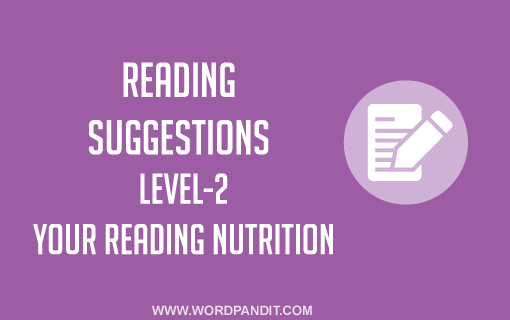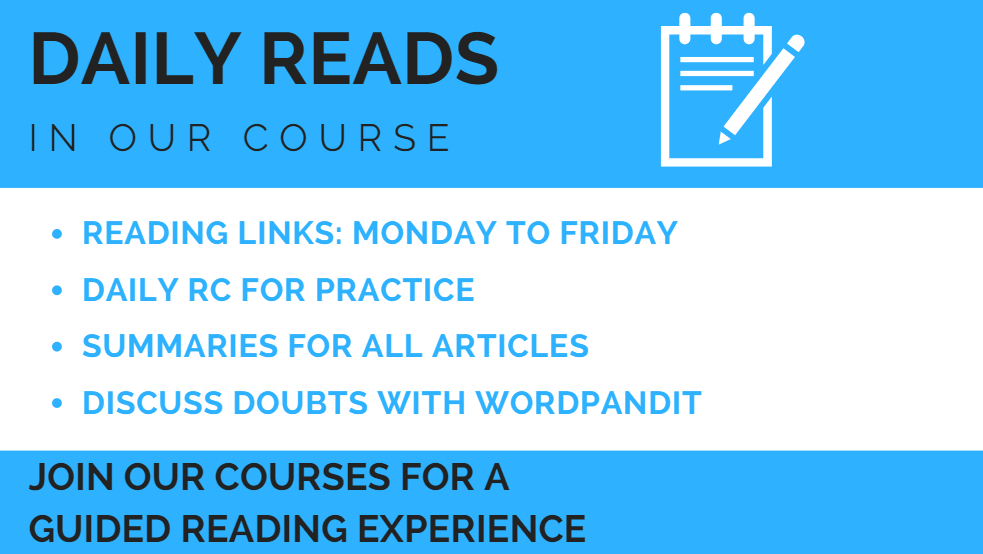Reading Suggestion-1
Article Name: In Defense of Democracy
Author Name: Chris Patten
Source: Project Syndicate
Category: Politics
Summary for this article:
This article focuses on Democracy; the state of democracy today and its virtues and in the end how it is better than other forms of ruling in spite its flaws in the past.The author starts with how initially democracy created chaos in western civilization as in the first half of the twentieth century it was not very civilized. He also states that several countries that were democracies at the beginning of this century have since shifted to different systems.
He further continues that only conducting Elections does not make a country democratic. These Elections should be fair and free and should not undermine minorities. A special case of Russia where elections happen but are not free and fair thus legitimizing subsequent emergence of Dictatorship. While in a real democracy free and fair elections are complemented more broadly by the rule of law, due process, an independent judiciary, an active civil society, and freedom of the press, worship, assembly, and association. Problems in democracy arise when the people – or, worse, their leaders – refuse to adhere to democratic norm like in the case of US where their president challenges some of the foundational rules, norms, and principles of American democracy.
Economic challenges, together with fears about migration, have created similar pressures in Europe as well. According to the author countering such assaults on democracy will require political leaders to show courage and vision as President of France (Emmanuel Macron) have been trying to do till now by defending the values that underpin democratic governance.
While concluding he gives the example of India. He emphasises that although India may have lost the economic race in the last few years, it has held together since independence, despite vast ethnic, religious, and linguistic differences. No matter the problems they still value safety values afforded by democracy and states that no society can manage indefinitely without such mechanisms.
Words to learn from this article:
Trampled: tread on and crush
Inexorable: impossible to stop or prevent
Potemkin: having a false or deceptive appearance, especially one presented for the purpose of propaganda
Assault: bombard with something undesirable or unpleasant
Subvert: undermine the power and authority of (an established system or institution)
Huckster: promote or sell
Parodies: an imitation of the style of a particular writer, artist, or genre with deliberate exaggeration for comic effect
Linguistic: relating to language
Reading Suggestion-1: Click to read full article
Reading Suggestion-2
Article Name: As robots take our jobs, we need something else. I know what that is
Author Name: George Monbiot
Source: The Guardian
Category: Sociology
Summary for this article:
This article deals with how we humans have turned into machines; how we give work more priority than our lives and the environment and tries to make us realise that voluntary unpaid work is at least as important than the paid work we do.
The author firstly gives us the example of Amazon, who patented wristbands that monitor hand movement of the workers; which leaves him worried that if such technology is developed it would just reduce humans to robots for companies. Today workers feel that their work is so repetitive, antisocial and alienating that somewhere they have lost their identity.
The author suggests that volunteering is the solution for the problem of an identity crisis, meaning, and purpose, a sense of autonomy, pride, and utility which is lost today in paid work. The author as well volunteered and shared his observation and thinking about NHS ( National Health System). He feels that without volunteering services (support group) the official system would fall apart. Some fascinating research papers suggest that positive interactions with other people promote physical healing, reduce physical pain, and minimise anxiety and stress for patients about to have an operation.
The author suggests that one should replace career advice with volunteering advice as there is little chance of finding jobs that match students’ hopes and personalities and engage their capabilities, there is every chance of connecting them with good opportunities to volunteer and also that we should see volunteering as something we have to do, but which no longer defines us . In the end, he concludes that we should keep fighting for better jobs and better working conditions. But the battle against workplace technology is an unequal one. The real economic struggle now is for the redistribution of wealth generated by labour and machines . Until we achieve this, most people will have to take whatever work is on offer but the most important aspect is that we cannot let it own us and change us.
Words to learn from this article:
Patent: a government authority or licence conferring a right or title for a set period, especially the sole right to exclude others from making, using, or selling an invention
Alienating: make (someone) feel isolated or estranged
Fazes: disturb or disconcert
Outrageous: shockingly bad or excessive
Reading Suggestion-2: Click to read full article
Reading Suggestion-3
Article Name: Art is all about nuance. Let’s not lose it in the alarmist censorship debate
Author’s Name: Rhiannon Lucy Cosslett
Source: The Guardian
Category: Art and Culture
Summary for this article:
This article focuses on how art could have different meanings for people; how people feel that their interpretation is always correct and if it does not suit them they call for censorship. The author of this article expresses that art is all about nuance.
She explains how in the last few years censorship, or indeed the cry thereof, has become something of a meme. Some well-meaning group of people, usually from a demographic that is still struggling to achieve full equality, will raise objections to the meaning of a piece of art or literature, sometimes (but notably not always ) request its removal thus making the press go ballistic.
She explains her point of view with the help of certain examples and controversial instances. One of them is the debate about the novel Lolita and the controversy behind it as people had different adaptations of this book. Thus the author concludes that currently, we are missing an important moment that if we refuse to listen to one another about art it would become dodgy. She accepts that nuance is unfashionable but it is also the site where art resides and it would be such a shame if we lost it.
Words to learn from this article:
Crotchety: irritable
Ballistic: to become extremely angry
Nymphs: a mythological spirit of nature imagined as a beautiful maiden inhabiting rivers, woods, or other locations
Acolytes: an assistant or follower
Dodgy: dishonest or unreliable
Nuance: a subtle difference in or shade of meaning, expression, or sound














